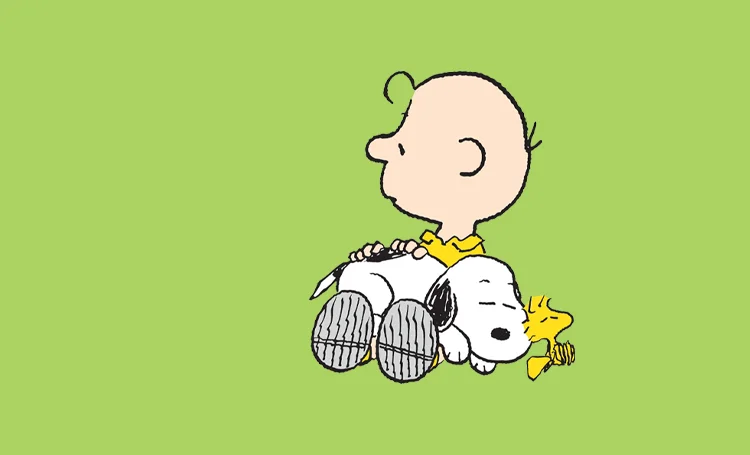PET PLANNING
How Much Does a Dog Cost?
Adding a dog to your household is a fun adventure filled with lots of love. It also involves many expenses that add up over time. You can expect to spend nearly $1,500 per year or more caring for a dog.1
Let’s discuss the most common dog ownership expenses, including medical care and dog essentials, and how a MetLife Pet Insurance policy could help reimburse dog owners for some of these costs.
MetLife Pet can help you cover dog injury and illness costs

The Cost of Getting a Dog
The amount you spend on bringing your dog home depends on many factors, like whether you adopt them from a shelter or buy them from a breeder, as well as their age, breed, and size. It can also depend on what state you live in — Hawaii, Massachusetts, and New York are the most expensive states for dog owners.1
Costs of adopting a dog
One option hopeful dog parents have is adopting a pup from a reputable shelter or rescue, which may be more affordable than buying from a breeder. Dog adoption costs can be anywhere between $30 and $455, though certain breeds may cost more. Overall, though, adoption fees are down from 2024.1
Some shelters include your new dog’s vaccines, microchipping, spaying or neutering, and other general health care in their adoption fees.1
Costs of getting a dog from a breeder
If you purchase a puppy from a breeder in 2025, you can often expect to pay between $775 and $4,750, which is a whopping 1,039% increase from the year before.1
More common breeds, like Labrador retrievers, may be on the less expensive side of the price spectrum. But harder to find breeds, like French bulldogs, can cost $2,700 – $5,750.2
It’s important to research the particular breed you’re looking for because purebred dogs and designer dog breeds can cost significantly more.2
Breaking Down the Costs of Owning a Dog
You’ll spend more in the first year because of all the initial costs, but the average cost to own a dog per year is still significant. And lifetime costs for a dog can reach anywhere from $16,440 for small dogs to $52,075 for large dogs.1
- Costs per year: The annual cost to own a dog is $1,520 – $6,415 for puppies, $1,260 – $4,170 for adult dogs, and $2,555 – $4,680 for senior dogs. This amount will vary based on breed.2 Plus, the bigger the dog, the higher your annual costs will likely be.1
- Costs per month: The monthly cost to own a dog is about $120 – $435 for a medium-sized breed. About half of those costs will be for food, treats, and preventatives, like flea and tick medication.1
Let’s dive into some other initial and recurring costs you’ll face after bringing your dog home.
Food and treats
Dog food and treats are an important expense you’ll incur for your new dog, spending $48 – $174 a month.1 Keep in mind the bigger the dog, the more they may eat, potentially increasing food costs. Also, high-energy and active dogs may need a higher calorie intake (more food) than others.3 Be sure to ask your vet for food brand suggestions as well as how much your dog should be eating.
Because of the many types of food and treats available on the market, this is where you can be selective in what you want to feed your new dog. Your dog's diet can also play a big role in their overall health, so if you’re looking to cut costs, nutrition may not be the place to do it.
Toys
Like food, bigger dogs require larger toys, which can cost more. And some dogs are more playful than others. You could spend $20 – $100 on toys when first bringing your dog home, and between $5 and $100 annually after that.1 Keep in mind that if your dog is a notoriously rough player or chewer, you may need to replace one or more of these toys more frequently over time.
Other dog essentials
Food, treats, and toys will go a long way toward keeping your dog healthy and happy, but there are lots of other items they may need. Here’s a list to get you started and what you could spend on these items:1
- Dog bed: $15 – $365
- Dog crate: $60 – $390
- Food and water bowls: Up to $65
- Collar and/or harness: $35 – $85
- Leash: $10 – $40
- Grooming supplies: $300 – $645
- Microchipping and ID: $15 – $65
- License: $25 – $125
- Poop bags: $6 – $12
- Pee pads: $32 – $65
Health care
Some initial health care costs may be covered depending on where you adopt your dog from. Beyond that, annual health care costs will involve checkups, vaccinations, and any unexpected medical emergencies.1
- Initial medical costs: Spaying or neutering your dog will be one of the first medical expenses you face after bringing them home, and it can cost $125 – $600. Vaccinating your dog will also be an initial cost, from $195 – $470.1 Some vaccines will be needed annually. These prices will vary depending on your dog’s age and other factors.
- Routine appointments: Their initial vet visit can cost between $90 and $170, while annual wellness checkups — where your dog will be examined and get their vaccines — can cost $75 – $240, depending on their age and other factors.1
- Preventative medications: Protection against fleas, ticks, and heartworms is important because these parasites can cause other health issues, and therefore become even more expensive. Preventatives can cost $20 – $310 upfront, and $120 – $420 annually after that, depending on your dog’s age and size.1
- Dental care: Veterinarians recommend dogs have an annual teeth cleaning, which can cost between $300 and $2,000.4 The price will vary depending on your dog’s size and if any other care is needed in addition to the dental cleaning, such as a tooth extraction.
- Unexpected costs: Your dog may face unpredictable health issues, just like humans do, and an emergency vet visit can cost thousands of dollars. However, a MetLife Pet dog insurance policy could reimburse you up to 90% of emergency vet bills.5
Dog rent and apartment fees
If you’re like many Americans, you may live in an apartment or rental property. Some rental agencies or private landlords ask for pet rent or a one-time fee. There may also be a deposit for cleaning when you move out in addition to monthly pet rent. Be sure to get these fees in writing and factor them into your budget.
Doggy day care or boarding
Pet parents may travel or work at an office, so they opt to have someone look after their pups while they’re away. Doggy day care or boarding costs an average of about $40 per day.6 These services can be offered at kennels, veterinary offices, private day care facilities, or through pet sitters. They often provide enrichment for dogs, making sure your pup gets some playtime, a good meal, and socialization with other animals.
Some pet parents also employ someone for dog walking services to ensure their pup is getting some exercise and interaction while they’re at work.
Groomer costs
Some breeds — like poodles, for example — may require regular visits to a groomer based on their coat. Pet owners with dogs requiring this type of grooming should budget between $300 and $975 each year for professional grooming costs, as it typically needs done every 2 – 3 months.1
Dog training
Dog training can cost between $115 and $975 depending on your dog’s age. Many dog owners find training classes or virtual training helpful for puppies and dogs who are reactive or anxious.1
Costs of a puppy vs. an older dog
Puppies tend to cost a little more than older dogs, especially when it comes to veterinary care, with all the puppy vaccinations, exams, and procedures like spaying or neutering. Generally, a puppy can cost up to $500 more than an adult or senior dog.1
Caring for a senior dog comes with its own costs, though, such as supplements to support joint health.1
Dog Insurance Can Help You With the Cost To Own a Dog
Here at MetLife Pet Insurance, we know just how quickly dogs become part of the family. And as a part of the family, you’ll want them to have the best care, which means dealing with vet bills for things like vaccines and checkups. MetLife Pet can reimburse dog owners for costs related to diagnosis, treatment, and hospitalization.
Plus, our Preventive Care add-on plan can help you cover some of the initial costs of owning a dog, like parasite prevention, spaying or neutering, and vaccines.
Get started today with a free quote to find a custom policy price that fits your budget, so you don’t have to let finances get in the way of your pet’s care.
Your dog deserves great care. Get it with the help of MetLife Pet.



